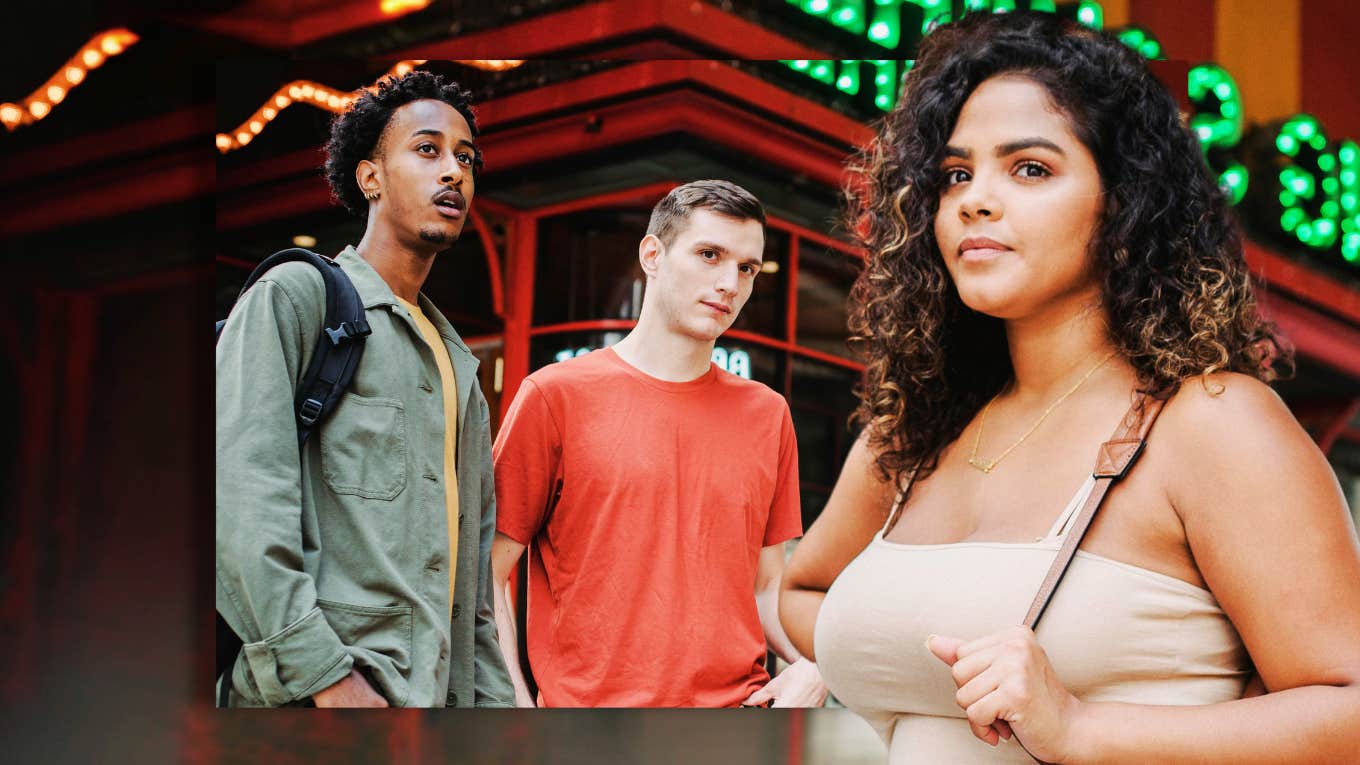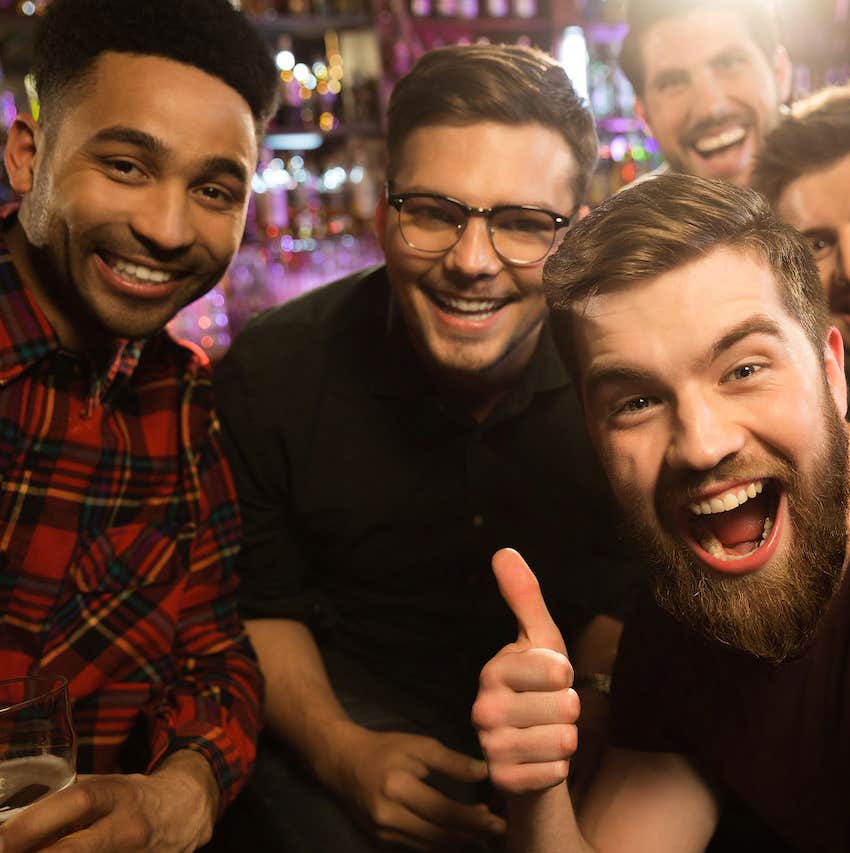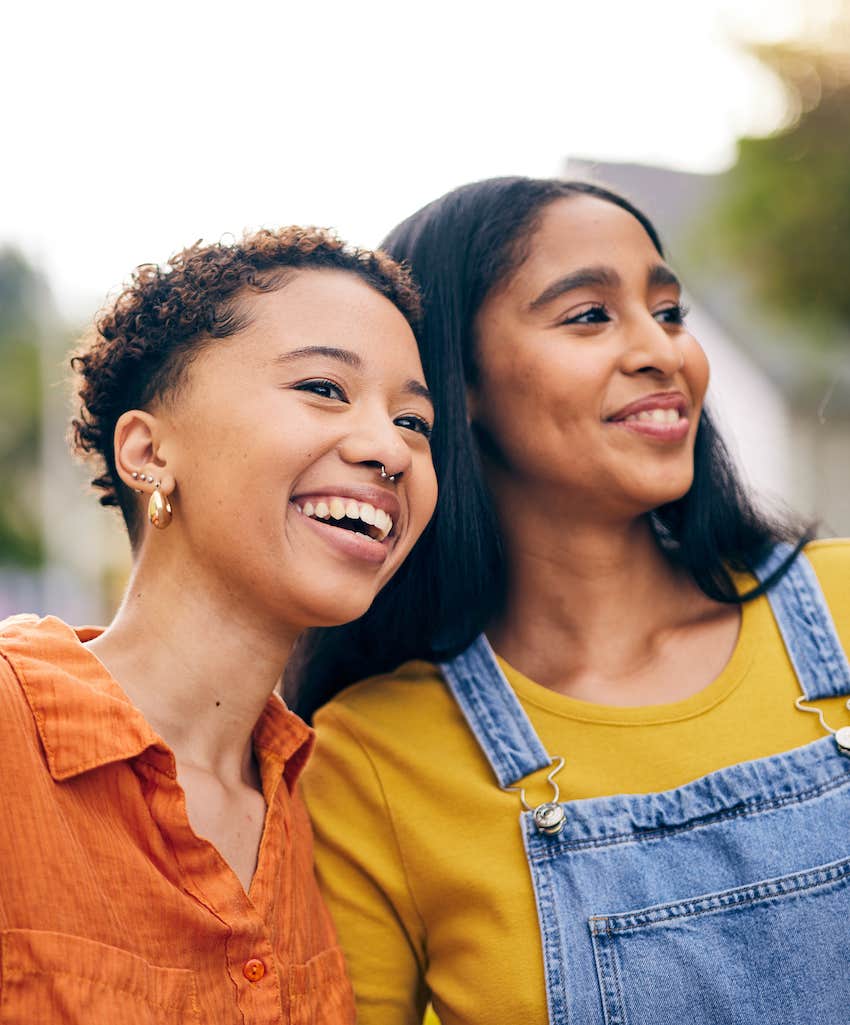The #1 Biggest Mistake (Almost) Everyone Makes When Dating
Plus, three things you can change now in order to find a real connection.
 William Fortunato | Pexels
William Fortunato | Pexels We live in an era of endless swiping. It’s like an Olympic sport of the thumb. Left, left, left…wait, right!
Someone with potential! Finally! You have conquered the odds and landed a date. Naturally, you meet at the best possible location to foster intimacy and connection: a noisy bar. Nothing says “I’m deeply interested in getting to know you,” like yelling your life story over the sound of "Uptown Funk" blasting in the background.
The biggest dating mistake? Trying to connect in a crowded restaurant or bar
You shout into the void of a crowded bar and hope for an emotional connection — no wonder you're not connecting!
You spend the first 10 minutes nodding and smiling like an enthusiastic bobblehead, pretending you can hear anything over the noise of clinking glasses and drunken conversations. Between the shouting and the small talk, you check in with yourself: Are there butterflies? Is there a spark? Shouldn’t I feel something? Ah yes, the mystical "spark," the dating world's version of instant magic — something we expect to feel right away but may be more misleading than we realize.
Research from The Journal of the Acoustical Society of America delivers the kicker, expecting to feel fireworks in a setting that’s about as conducive to romance as a football stadium is painfully unreasonable. Yet, this is what we have come to expect from modern dating. It’s like setting up a chessboard and being surprised when you don’t win at poker.
Environments like noisy bars can increase cognitive load, meaning your brain is too busy processing the noise and distraction to focus on emotional connection, as demonstrated in research from the Educational Psychology Review. In other words, it’s hard to feel genuine "sparks" when you're shouting over Uptown Funk.
Even if you do feel butterflies, it’s important to remember those feelings could be anxiety or overstimulation rather than romantic chemistry. The brain sometimes misinterprets excitement in chaotic settings as attraction, which can lead us to confuse stress for sparks.
 Dean Drobot via Shutterstock
Dean Drobot via Shutterstock
Three other dating mistakes to avoid if you want real love
1. Getting caught in the 'romance vs. codependency' Hollywood lie
An article in Communication Quarterly helps us see how TV shows and movies have sold us a seriously skewed idea of romance. You've seen the tropes: the woman looks longingly out the window and says, "Shouldn’t I want to die for him? Shouldn’t I feel like I ache when he leaves the room for five seconds?" And we, the hopeless romantics, sit there with our popcorn thinking, “Yeah, that sounds right. I should want to sacrifice a limb just to keep them close.”
Let’s call this what it is: codependency, not romance, my friends, that’s a Lifetime movie plot. If you need to be glued to someone’s side every second of the day to feel fulfilled, you’re not in love — you’re in emotional handcuffs. Yet, many of us measure the success of a date by asking ourselves if we feel that burning, all-consuming obsession from the jump. Spoiler alert: if you're in a bar shouting to be heard while making awkward small talk, you're probably not going to feel much beyond the urge to order another round.
The truth is much of what we consider to be romantic obsession is often tied to anxious attachment, a psychological condition where we rely on constant closeness to feel secure. Codependency often masquerades as romance because the media has conditioned us to believe love means obsession, but in reality, the all-consuming feeling can lead to emotional burnout rather than fulfillment.
2. You went looking for sparks and forgot the fun
Here’s where I propose a radical shift in thinking: what if, instead of waiting for someone to magically bring joy into a joyless scenario, you flipped the script? What if, instead of forcing the "spark" in a loud, chaotic place, you started with the fun first?
Think about it: when’s the last time you truly enjoyed yourself at a bar, shouting to be heard? Probably never. Now imagine doing something fun on a first date—like an escape room, a cooking class, or going bowling. Research from the University of North Carolina helps show that shared activities that engage problem-solving, laughter, and creativity can foster connection more naturally than sitting in a loud bar. When you’re actively enjoying yourself, your brain releases dopamine, a neurotransmitter associated with pleasure, which can help facilitate feelings of connection and positivity toward the person you're with, as explored in a study in the Journal of Current Biology.
The key isn't just putting yourself in fun situations but seeing if being with that person amplifies the joy. If you’re already having a good time, and their presence makes it better, there’s your spark. But starting from zero joy and expecting them to pull you out of the void is a setup for failure.
 PeopleImages.com - Yuri A via Shutterstock
PeopleImages.com - Yuri A via Shutterstock
3. You sabotage yourself for the comfort of loneliness
Here’s another truth bomb: many of us have grown comfortable in our loneliness. Yeah, I said it. Even if we’re actively swiping through apps, hoping to find someone to share our lives with, a part of us is more comfortable staying in the status quo—alone. Why? Because it’s familiar. We humans are creatures of habit. The brain, in all its primitive glory, doesn’t care about your happiness; it cares about your survival.
If you’ve been living for years in a state of loneliness or hopelessness, your brain has decided this is your “normal.” Jordan Grafman, PhD explains that thanks to neuroplasticity — the brain's ability to rewire itself based on repeated experiences — you can get stuck in patterns that reinforce isolation because they feel safe. Your brain defaults to the familiar, even if the familiar is less than ideal. You might even find yourself subconsciously seeking out situations that reinforce your loneliness, not because you hate yourself but because your autopilot brain is just trying to keep the ship steady.
This is why so many people who are perpetually single fall into patterns that don’t serve them. If you’ve been living on autopilot for the past decade, swiping aimlessly and going on bar dates lead to nothing, so your brain sees your routine. Breaking the routine feels uncomfortable, even if it’s exactly what you need.
Embrace discomfort to head down the path of change
The thing we have to realize is discomfort isn’t something to avoid. Discomfort is the doorway to growth, closeness, and new opportunities. Elizabeth Phillips' research on vulnerability and relationships helps show how stepping out of your comfort zone is essential to forming deeper connections. If what you’ve been doing isn’t making you happy, maybe it’s time to step out of your comfort zone and try something different.
The next time you set up a date, do not just default to the easy, the familiar, the “let’s grab a drink.” Try something to bring life into the evening — an activity that engages both of you sparks laughter, and maybe even a little competition. Who knows? You might not find an instant spark or feel butterflies immediately — but you will get to see if being with this person adds to the fun you’re already having.
Because let’s be real, the way we date isn’t serving us. If you’re still shouting across a crowded bar trying to force a connection, it’s time to leave it behind. Stop chasing the myth of instant sparks, and instead, focus on building genuine connection and joy.
Erika Jordan is an internationally acclaimed love and relationship expert, NLP practitioner, author, media personality, and a leader in the field of digital romance and online dating.

